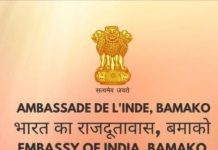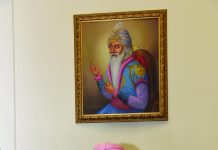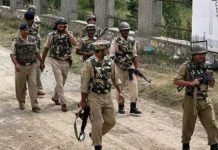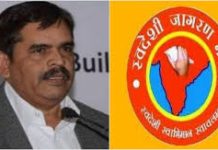
Subramaniam Swamy, the mercurial Indian politician, said the other day that India should by March this year be able to “Balkanize” Pakistan into four parts. Not many would really take Swamy with any degree of seriousness when he talks of things which are not a part of the declared state policy. And his remarks about Pakistan would have served for nothing more than a little bit of political amusement in the country. But amusement must have been far from the thoughts of the Pakistani establishment when Swamy’s words were echoed by none other than India’s National Security Advisor (NSA) Ajit Doval’s ominous warning to our Western neighbour, “One more Mumbai, and you lose Balochistan.” As if that were not enough, Prime Minister Narendra Modi himself mounted the ramparts of the Red Fort last year to announce that he had been receiving letters full of friendly and even brotherly warmth from the people of Balochistan.
This has got Pakistan worried, but then, that precisely must have been the intention behind Doval’s and the PM’s words. And the reason for those words is not India’s sudden and new-found interest in Balkanising what remains
of Pakistan after 1971. The real reason is the impatience in New Delhi with terrorism continuing to bleed the Indian state even beyond Jammu and Kashmir. Pakistan denies any hand in Uri or Pathankot. But that no longer worries India. It used to, but now it doesn’t seem to.
The reason for that is India’s foreign policy reaching new levels of realism. It seems to have abandoned the innocence of an ‘aggrieved and victimised state’ and this transformation has not come abut with either Narendra Modi or Ajit Doval even though one cannot deny that the two have been more vocal than their predecessors on preferring realism to idealism.
But then, what is really worrying India about Pakistan — beyond the risk of another disguised incursion into Kashmir by our neighbour’s uniformed establishment? To be frank, India seems to have gone beyond worrying about Pakistan as New Delhi is now focused more on its global positioning than on the dangers from the Western borders.
This is a new realistic dimension, one that started in the latter half of Vajpayee’s regime and continued at an even greater speed during the tenure of Dr Manmohan Singh. It has now gained a more ‘vocal’ momentum, and that may not be a bad thing at all if India’s main concern is to ensure peace in the region. The fact is that diplomacy and foreign policy works in ways quite contrary to how politics works. Indira Gandhi had said immediately after the Bangladesh war that she had ensured peace with Pakistan for the next three decades. In fact, peace has lasted much longer. The two countries have not gone to war with each other since 1971 — Kargil being just a one-sided incursion that India ensured ended in an embarrassment to the aggressor. But the international border between Indian and Pakistan has remained quiet since 1971 — in fact, since 1965, as even 1971 was merely a desperate Pakistani adventure more to save face on its eastern humiliation than to really pose any danger to India.
So why should India still be worried about what goes on beyond its Western borders? For an answer to this, one must first try and understand how instability in Pakistan affects us. The fact is that even if Pakistan were to offer a merger with India, India will almost certainly not accept it— leaving that country’s establishment to continue to battle with “sandy mounds where snakes abide.” For that very reason, India does not want a destabilized Pakistan in its neighborhood. A stable Pakistan, even as an enemy, suits India more than a friendly but troubled Pakistan. Balkanization of Pakistan is the last thing that suits India’s security concerns. India does not want boxful of snakes in its lap. It would rather leave ‘the uniformed’ snake charmers across the border to deal with those snakes.

Which is why Doval seems always to keep a close watch on the situation within Pakistan — not because he wants to destabilize conditions there but, on the contrary, he does not want instability there to begin to spill over into our homes.
So what is happening in Pakistan?
As a state, it is hard even to find out if there is a Pakistan out there. There are several. And they keep changing their political, psychological and even administrative colours every other day. No one in Pakistan seems to know what their country stands for. Is it a liberal Islamic or a Jehadi Islamist state? Is it Jinnah’s Pakistan with emphasis on constitutional secularism — the August 11, 1948 speech being iconic — or is it the Pakistan of the fundamentalist Mullahs insisting on Shariat laws as the only constitution ? There is an educated middle class in Pakistan which is in no way different from or inferior to its counterpart in India. They love cinema. They love English. They love Bollywood and they WANT TO LOVE India. But they are annoyed with India for not standing by them against enemies in their own country — the fundamentalists. And there are the ‘lal topiwalas’ — the passionate ideological equivalents of the old-world Mullahs , the Zaid Hamids who function more as mouthpieces of the Inter-Services Intelligence (ISI), the Army Inter-Services Public Relations (ISPR) than as representatives of Pakistan’s educated middle class.
Then there is also the liberated media — the cool and composed though slightly angry Rauf Klasras, the Amir Mateens, the liberated intellectuals like Pervez Hoodhbhoys, and the genuinely impartial and objective journalists like Ejaz Haider or intellectuals like Parvez Darvesh. Then there are angry but liberated intellectuals like Hassan Nisar — too bold to be tolerated even in India. And there are quite a few others, some operating from overseas but most from the Pakistani soil itself, telling their countrymen to rise above bigotry and see reality as the global community sees it. And there are cerebral politicians like Hina Rabbani.
But then, waiting at the end of it all is the army. You can’t move a leaf without permissions from the army headquarters. You must understand Pakistan: it’s not like India or England. Here , the army has all the power and the politicians all the responsibility and blame. In Pakistan, democracy is merely a camouflage to cover the army’s sins. The politicians know it, and they generally play along. But there are times when they speak out, like Nawaz Sharif has been doing since his departure from the PM’s office. Zulfikar Ali Bhutto did so briefly when he had to “extinguish” Field Marshal General Ayub Khan post-Tashkent Agreement, and again when he had to blame his own failures on the drunken military General , another Field Marshal, Yahaya Khan, after the defeat of the Pakistani Army and the creation of Bangladesh.
Almost all of these — Bhutto despite his threat of “a thousand year war” and Nawaz Sharif despite his acquiescence in the Kargil operation with General Pervez Musharraf — were men who sought to resolve tensions with India. But they were upstaged as soon as they were about to succeed.
Ironically, the man who came closest to resolving the seemingly intractable India-Pakistan conflict was an army General, President Pervez Musharraf, who nearly pulled it off on Kashmir with his original talk of “out of the box” solutions. I can never forget the way he spoke about the problem, and it sounded and probably was so honest: “We say resolve Kashmir according to our approach. You say ‘We must resolve it our way.’ Therefore, there is no go. So, lets do so, let us do something different. Let is us think out of the box.” That was as original as it can get.
But may be, the Indian government and the Pakistan army working behind the shoulders of Musharraf ensured that the problem wasn’t as simple as that. If that is true, that indeed is a great pity and a great tragedy. For whatever else Pervez Musharraf may have been, his proposal for a solution of the Kashmir tangle was not only original but also, for a Pakistani Head of State, a very courageous one. And perhaps the only solution possible — turning the Line-of-Control into a line of irrelevance and virtually bringing the two Kashmirs together without either India or Pakistan having to surrender their prestige or stakes. But that was the last time the two countries ever got close to lasting peace.
India’s problem with Pakistan is not that one is a secular state and the other a theocratic one. There are so many other theocratic countries with whom India enjoys excellent ties — not just political and economic but even cultural. Most of these countries, like Saudi Arabia, Yemen, Iran, Afghanistan, Bangladesh, etc., happen to be in the Islamic block. And yet India’s trade and cultural ties with all these countries have traditionally been strong and have been on the upswing. For that matter, even Israel is a Jewish state but while maintaining its principled stance on Palestine, India has always had sound bilateral ties with it. This was so even when New Delhi did not have formal diplomatic ties with Tel Aviv.
Thus, India’s issue with Pakistan has nothing to do with our neighbours being a theocratic state. Nor is there any substance in the impression deliberately spread across Pakistan by its Mullah-military establishment that India has never really been reconciled to the reality of Pakistan as a state and harbours secret ambitions to annex it. Ironically, the propaganda that there is a strong communal Hindu lobby in India represented by the RSS and its political arm, the BJP, fell flat on its face with Atal Behari Vajpayee becoming the first Indian Prime Minister to pay an official visit to Minar-e-Pakistan as a symbolic gesture to dispel the impression that his party continued to believe in ‘Akhand Bharat’ which includes the present day Pakistan, Bangledesh, Nepal, Myanmar and parts of Afghanistan.
India’s real problem with Pakistan is the deliberate choice Pakistani establishment continues to make in keeping it a security state, with the entire focus being on Pakistan becoming a strong military power to ward off “the threat of Hindu hegemony in the region”. The security-state syndrome translates into reducing democracy to an object of ridicule and something which a patronizing army brooks only as a concession to the political class. If Jinnah wanted Pakistan to be a liberal secular democracy with a tolerant Muslim majority, that ideal was buried with him as Liaqat Ali Khan quickly tied his country’s destiny to the Mullah-military regime. This, obviously should be Pakistan’s internal affair and India should have no problem in dealing with it.
letters@tehelka.com













